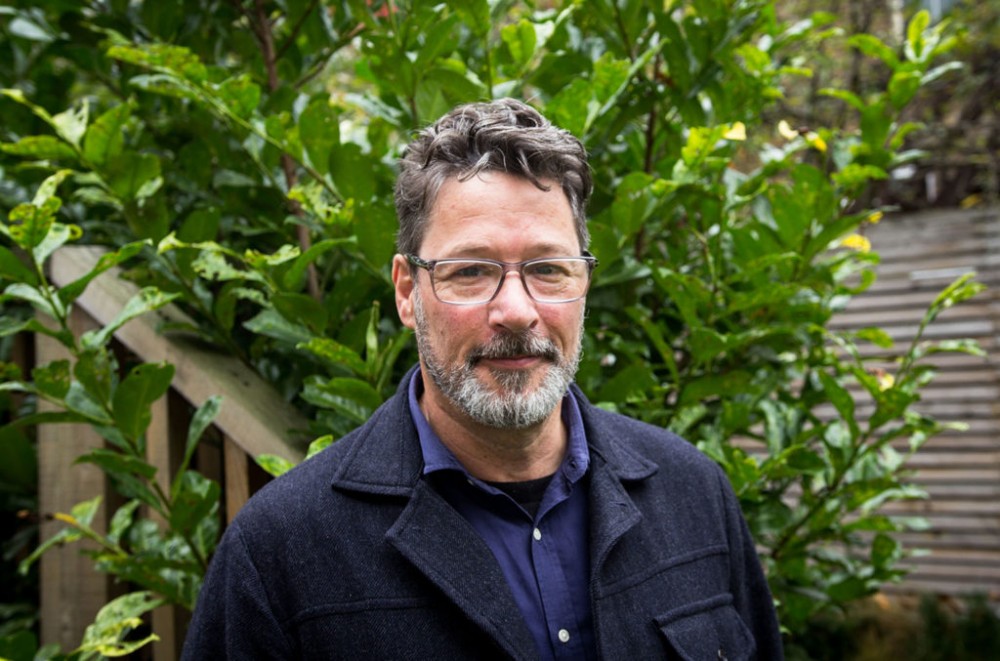Ibrahim Ferrer “reimagined” by Ry Cooder & a Hugh Masakela/Tony Allen collab are the latest from the world music label, acquired by the multinational in 2018.
Nick Gold ran the independent London-based World Circuit label on a simple premise.
“I thought if you love something, there’s a chance that someone else will too,” says Gold, who opened up the typically niche market for world music to a wide audience with albums by the great Malian musician Ali Farka Touré, Dakar dance band Orchestra Baobab and, most phenomenally, Buena Vista Social Club — led by the global sleeper hit song “Chan Chan” — and a stream of subsequent recordings by its individual Cuban artists. “The risk side of things never struck me so much.”
Gold has frequently acknowledged his discomfort with using the loaded term “world music,” the marginalizing name for a multitude of international sounds, under which umbrella he has had unprecedented commercial success.
In 2018, he sold the World Circuit label to BMG in a reportedly multimillion-dollar deal (the label would not confirm or deny figures). Under the terms of the acquisition, Gold, 58, continues to head the label with a small production team within BMG, and support from company marketing and promotion departments.
“I needed space to look at more of the artistic side of things and I was tired of running the company on my own,” comments Gold, who started with World Circuit when it was founded by Anne Hunt and Mary Farquharson in 1986, and soon became its owner. “BMG seemed very interested in all aspects of what we were doing and very enthusiastic about moving it forward and getting it more exposure.”
Michael Kachko, BMG U.S.’ SVP of Catalogue calls the acquisition “a match made in heaven.” “We didn’t have that type of catalog in our portfolio that was specifically in the world music space,” he says, stating BMG’s goal to expand the label’s reach with “laser-focused marketing and a five-to ten-year plan.”
A quiet revival of the catalogue that had its heyday in the 1990s and 2000s began late last year, with a series of previously released albums by Touré, Buena Vista Social Club surviving member Omara Portuondo, Cuban country singer-songwriter Guillermo Portabales and Spanish/Arabic fusion group Radio Tarifa, now available on vinyl for the first time. On Friday (Feb. 28), World Circuit/BMG will release a new version of the late Buena Vista singer Ibrahim Ferrer’s 2003 album Buenos Hermanos, “completely reimagined” by Ry Cooder (who produced Buena Vista and subsequent albums by artists in Havana), remixed from the masters with four additional tracks that had been left off the album the first time. Rejoice, an improvisational collaboration by the famed South African trumpeter Hugh Masekela and Afrobeat drummer Tony Allen, recorded over a weekend a decade ago, comes out on March 20.
Kachko reports that the re-released albums have so far performed beyond the company’s expectations, adding that every future World Circuit release will be issued on vinyl, appealing primarily to enthusiasts who cherished the albums on CD the first time around. BMG is courting new fans through streaming services, social media and lyric videos on YouTube. “We’re also looking at doing some remixes,” he adds. The sweet spot of the deal for BMG was, of course, the Buena Vista Social Club, the magical recording of a gathering of Cuban senior citizens that to date has sold 1.9 million albums and generated 72 million streams in the United States alone, according to Nielsen Music/MRC Data. The album, recorded and released by World Circuit in 1996 and in the U.S. on the Nonesuch label in 1997, topped Billboard’s World Albums and Top Latin Albums charts. According to World Circuit, it has sold more than eight million copies worldwide. A franchise of more than a dozen sequels, featuring solo albums by Omara Portuondo, pianist Ruben Gonzalez, trumpet player Manuel “Guajiro” Mirabal and Cuban mid-century modern guitarist Manuel Galbán, among others, have sold millions more.
BMG’s Kachko deems BVSC the “jewel in the crown” of World Circuit’s catalogue. He reveals that the 25th anniversary of the recording of the album will be accompanied by a slate of special products.
“It takes you to another place more than the vast majority of records I’ve ever listened to,” Gold says when asked to look back on the reasons for the album’s remarkable success. “…If you listen to that record it’s just beautiful, and you feel completely absorbed in it…That’s obviously not enough of a reason for it to be so successful, because there are other beautiful records that haven’t been so successful. It was an element of everything being aligned. There’s a real intimacy in that records and human contact within it that you don’t come across every day.”
Gold reports that the label’s move to BMG has given him time to explore and reassess World Circuit’s recording archive. “Once you get your head above water, you realize that there is this ludicrous amount of music. I’m excited to be starting to sort through it.” He says that BMG has made him aware of “the potential for film or TV or books” and podcasts – a new discovery for Gold – in a new era of content creation and distribution in which “people are very, very open to all sorts of music and people are getting more and more open.
“During the process of the negotiation and so forth it became apparent very early on that the people at BMG] was were very keen,” he adds. “it didn’t feel just like an acquisition, it felt like there was an emotion behind it, and a real desire to do justice to some of these artists, to get them out there expand it and carry on. So it’s not really come as a surprise that its working out.”



